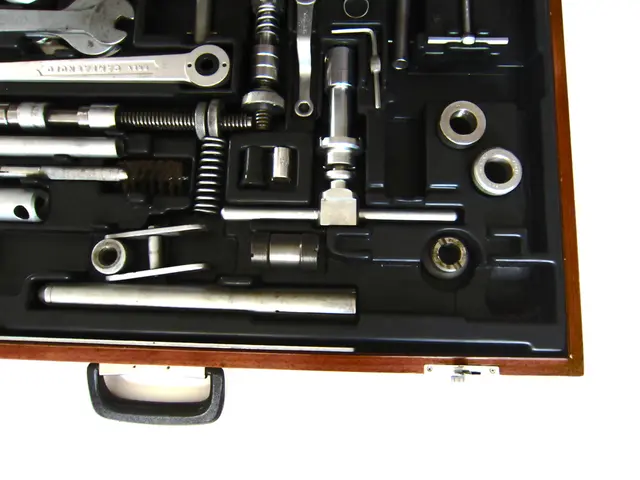Electric Vehicles Anticipated to Hold More Than 7% Market Control by Fiscal Year 28: Analysis
The Indian government has taken significant strides towards bolstering the electric vehicle (EV) sector, as evidenced by the FY 26 budget. One of the key initiatives is the introduction of zero basic customs duty on 16 key minerals used in EV batteries, a move aimed at lowering production costs.
Currently, India relies heavily on imports for its lithium-ion cells, with the majority coming from China, Japan, and South Korea. However, if the current momentum continues, EVs could prove to be cost-competitive, or even cheaper than comparable conventional Internal Combustion Engine (ICE) vehicles, over a period of five years.
The growth of the electric car segment in India has been impressive, increasing by 21 times over the past three years. The number of EV chargers has also seen a significant increase, growing 5 times in the last three years, from 5,151 chargers in FY22 to over 26,000 by early FY25.
However, the growth of electric cars in India is not without challenges. The sector's domestic price competitiveness has been restrained due to imports, and the sector is exposed to chain shocks. China's recent move to impose export restrictions on rare earth elements is a major headwind in India's EV journey, as India currently sources over 90% of its rare earth element imports from China.
To mitigate this crisis, the government is focusing on diversifying import sources, developing strategic stockpiles, and scaling rare earth processing domestically. Initiatives like FAME-III and the Production-Linked Incentive (PLI) scheme for advanced chemistry cell (ACC) batteries are expected to lower vehicle production costs and improve domestic supply chains.
Vehicle Original Equipment Manufacturers (OEMs) in India are also taking proactive steps to address these challenges. They are offering smart home chargers bundled with every EV purchase and are working towards establishing fast-charging corridors across key metropolitan cities.
Tanvi Shah, Senior Director & Head of CareEdge Advisory & Research, believes that India is well-positioned to accelerate EV adoption with a robust pipeline of model launches, expanding EV charging infrastructure, and battery localisation under the PLI scheme. By FY 27, import dependency could fall by 20%, marking a significant step towards self-reliance in the EV sector.
By the end of March 2028, electric car sales in India are projected to reach over 7%. With continued measures and a focus on overcoming challenges, India's electric vehicle journey is poised for continued growth and success.








